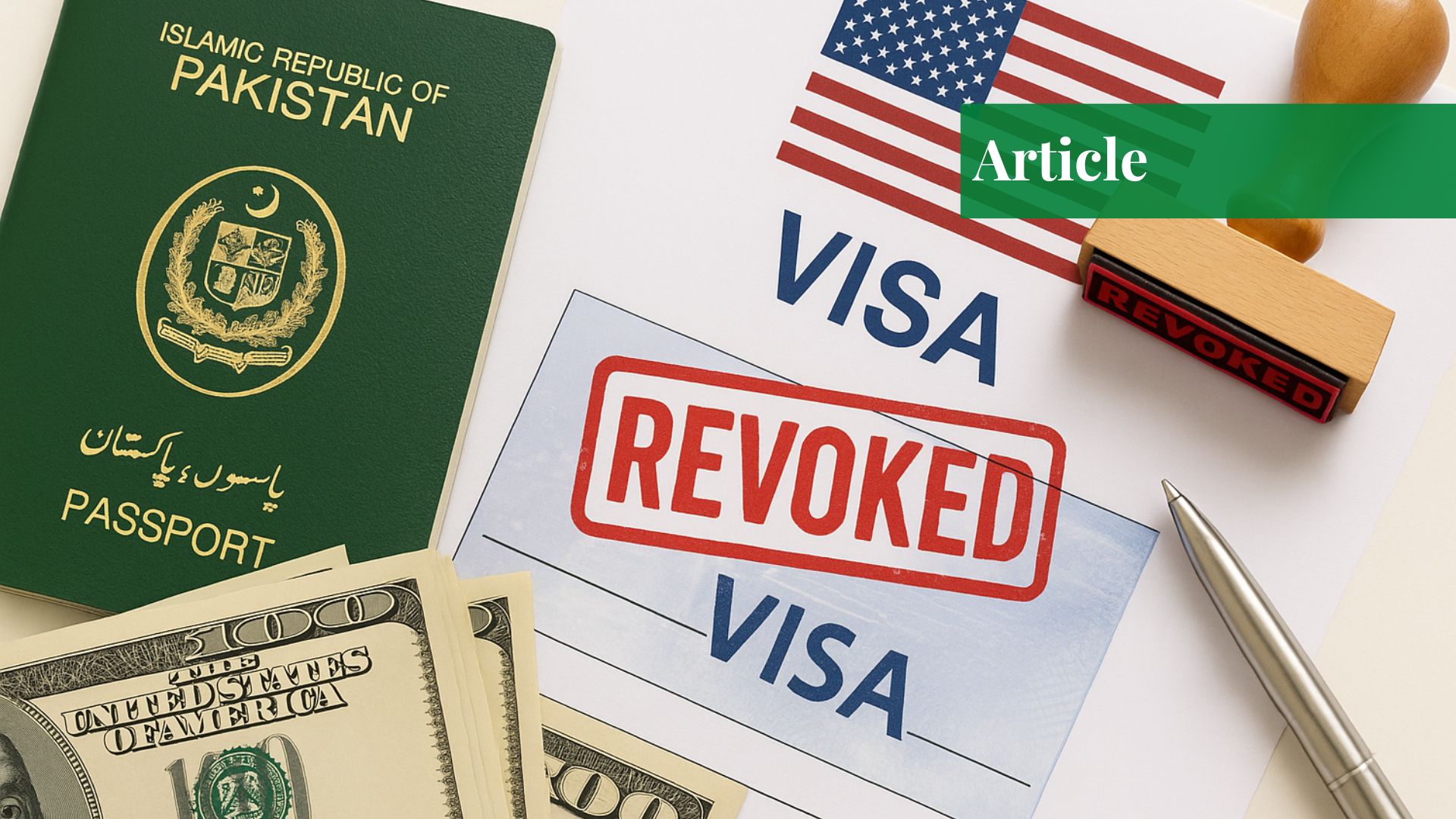Introduction
Ever since the Trump administration came into power, there have been nonstop developments regarding deportation. One of its recent targets has been international students legally present in the USA. About a month ago, international students in the USA woke up to an email from the government asking them to self-deport from the country. The decision to revoke student visas by the Trump administration, of course, caused immense stress for students who did not see this coming and led to anxiety for all international students, regardless of their backgrounds or conduct, due to the unclear reasons for their deportation.
Soon after, a rise in social media posts and videos showed plainclothes ICE (Immigration and Customs Enforcement) agents wearing face masks arresting international students without warning or arrest warrants in broad daylight. Students were taken into custody, denied their right to contact their attorney, and transported out of state to detention centers. Over the past four weeks, the situation has seen many changes, with things seeming to get better one day but worsening the next, as more than 1,000 international students have had their visas revoked under the new Trump administration.

The Case of Rumeysa Ozturk: Arrest without Due Process
In the beginning, many people thought that deportation was mostly occurring for students involved in campus protests, specifically the pro-Palestine protests. This belief grew stronger after a statement from Secretary of State Marco Rubio, who, in a press release, said that the US provides students with visas to study and earn degrees, not to protest on campuses, and that if they do so, the US will revoke their visas.
This statement is ironic, as Marco Rubio was one of the few who opposed Joe Biden’s deportation plan back in 2021, where he stated that it is unfair to retrospectively apply a new policy and punish individuals for something they said or did in the past. However, he contradicts his statement from 2021, as today he is a strong supporter of deporting legally present international students, including cases like that of Rumeysa Ozturk, a graduate student at Tufts University who was arrested by plainclothes Department of Homeland Security agents for an opinion piece she wrote more than a year ago during the Joe Biden administration.
Rumeysa was arrested, and her attorney claimed that there were orders from a judge not to move Rumeysa out of Massachusetts without 48 hours’ notice. Despite these orders, Rumeysa was found in a detention center in Louisiana, unable to contact friends or her legal representative. Many view this as an assault on freedom of speech, as the only crime she committed was co-authoring a paper in the school’s student newspaper.
When questions arose about the situation, the US Department of Homeland Security spokesperson, Tricia McLaughlin, stated that a US visa is not a right but a privilege, implying it can be revoked with one wrong move. This situation has impacted many international students, some of whom were afraid to even leave their homes. Many pointed out that Rumeysa’s arrest resembled more of a kidnapping than an actual arrest. Tufts president, Sunil Kumar, in his statement, mentioned that the school had no information about Ozturk’s potential arrest, which has made international students more anxious, as even their school cannot provide help or support if they face a similar situation.
The Arrest of Mahmood Khalil: A Controversial Case
An older case that has gained attention in the past few weeks, especially after the detention of Rumeysa Ozturk, is that of Mahmood Khalil, a student at Columbia University, arrested on March 8th for leading the pro-Palestinian protest at the university last spring during the Joe Biden administration. ICE agents arrested Khalil based on allegations that he participated in “unlawful activities” in support of Hamas.
This allegation, however, was completely denied by his legal representatives, who stated that there is no doubt that Mahmood Khalil is a Palestinian activist advocating for the rights of the Palestinian people. However, the claim that he supported Hamas is entirely baseless, as the government has failed to provide any evidence to support this assertion. Khalil is not in the US on a student visa; he is a green card holder and a legal resident of the country. The government also later acknowledged Khalil’s wife’s claim that he was arrested without a warrant; therefore, many argue that this was not an arrest but a kidnapping.
There have been mass protests across the US in support of Mahmood Khalil, making him the face of the visa revocation issue affecting legal students. The government is perceived to justify its arrest by claiming his actions attack national interests and its foreign policy, asserting that Khalil’s actions are anti-Semitic and an assault on the rights of Jewish students.
Conversely, ACLU’s national legal director, Cecillia Wang, stated that the First Amendment protects every person in the US concerning their position in protests and the exercise of fundamental rights outlined in the First Amendment. According to Wang, the government has no right to single out an individual based on their beliefs and the causes they support. She also commented that this government action will not only impact immigrants but also a broader population, as it constitutes an attack on fundamental rights, leading to an authoritarian government.
Unjust Visa Revocations Impacting International Students
Although the initial belief and the government’s claims said that the visa revocation was affecting those who were in any way involved in the pro-Palestinian protests, this was proved wrong very quickly when the government started to revoke visas for all international students, indiscriminately. Some of these revocations were based on minor crimes like a speeding ticket or a DUI. The international students ended up being flagged by the government agencies for these petty crimes and consequently had their visas revoked.

Some of these revocations were also done without a shred of evidence of even a minor crime having been committed. Almost 50% of all the visas revoked during this four-week time are those of Indian students, which has caused unrest among the Indian international students. Many students were also detained by the government for having part-time jobs off campus, which was argued to be insufficient evidence by legal experts. This resulted in an alarming 1,200 revocations of student visas, with the students at a constant risk of deportation due to the Trump administration’s decision. More than 133 students filed a lawsuit against the government before a federal judge.
Reversal of Visa Revocations for International Students
On April 25th, a federal court ruled that the government’s mass termination of students from the Student and Exchange Visitor Information System (SEVIS) database was illegal. As a result, the Trump administration announced through its lawyers that it would reverse the revocation of student visas, reactivating the visas for all international students. On the same day, the government also revealed that the Immigration and Customs Enforcement (ICE) agency was developing a new policy to address the situation.
Despite the government’s announcement to reverse the visa revocations, significant damage had already occurred. Many international students had left the country in fear of deportation or had gone into hiding, making it impossible for them to attend classes. This situation raised substantial concerns within the education sector, prompting support from numerous universities for their affected students.
New Policy on International Student Visa Revocation under the Trump Administration
Less than a week after the reversal announcement, the Trump administration introduced its new policy for international students. This new policy expanded the grounds for visa revocation and subsequent deportation. It stated that if an international student’s visa is revoked, it would lead to instant deportation. Previously, students could complete their studies even after a visa revocation, but under the new policy, the government now has the authority to deport students immediately.
Conclusion
America has always been a strong advocate for the protection of fundamental rights, including freedom of speech and the right to protest. However, since the Trump administration came into power, these rights have been gradually eroded. It began with the deportation of illegal migrants to places like Guantanamo Bay and prisons in El Salvador, often under the pretense that they had criminal records—a claim that was proven untrue for most, if not all, of those deported.
Now, even students legally present in the US are facing visa revocations based on their speech or participation in protests. In some cases, these revocations are justified as actions against criminals, although the students lack any criminal record. The actions of the Trump administration will have lasting effects for years to come, tarnishing the legacy of a country that has historically provided strong protections for fundamental rights indiscriminately.
If you want to submit your articles and/or research papers, please visit the Submissions page.
To stay updated with the latest jobs, CSS news, internships, scholarships, and current affairs articles, join our Community Forum!
The views and opinions expressed in this article/paper are the author’s own and do not necessarily reflect the editorial position of Paradigm Shift.
Fatima Mazhar is a 9th-semester law student at the International Islamic University, Islamabad. She is currently serving as the chairperson of the Law Students Council, Pakistan.



